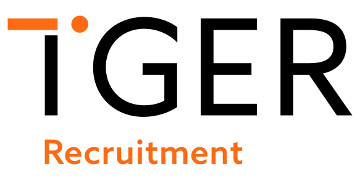This perception stems from the traditional mindset, where fixed working hours and rigid schedules were valued more than adaptability.
However, in recent times, there has been a shift in how individuals perceive work.
In hybrid or remote environments, people are looking for freedom to choose how they work while also ensuring they meet their KPIs.
Many have called it 'work/life balance', striving to prioritise their career and personal life demands equally.
However, for the others who work long hours or have a newborn baby, the term simply doesn’t work, creating more stress and guilt from the inability to balance the scales.
Flexible working bill receives royal assent: what HR needs to know
Flexible work stigma still an obstacle in UK
Flexible working: what HR needs to know to make it work
Employees should be able to choose a work environment that allows them to have a better integration of work and life rather than seeking a strict work/life balance. As a result, a new term emerges – work/life fluidity.
Creating a mindset of functioning imbalance
Work/life fluidity is a concept that challenges the traditional notion of work/life balance.
Instead of striving for an equal division of time and energy between work and personal life, it emphasises the importance of setting expectations around flexibility and adaptability in managing both aspects.
It recognises that individuals have different motivations, priorities, and responsibilities outside of work. Work doesn't necessarily have to be confined to a specific schedule or location.
For example, work/life fluidity can mean leaving work slightly earlier to spend time with family or attending to personal commitments and then continuing work in the evening.
This shouldn’t put pressure on others to respond to their emails instantly either; in fact, it’s a common practice in some companies to include a small note explaining that they work asynchronously and don’t expect the recipient to do the same.
The goal is to find a balance that works for individuals, allowing them to meet their personal obligations while also fulfilling their work responsibilities.
Flexibility goes beyond just hours or location. It encourages individuals to find creative solutions and work styles that suit their needs and maintain productivity.
Making work/life fluidity work
Companies that embrace work/life fluidity can create an environment where employees feel empowered to manage their time and responsibilities.
This can lead to greater job satisfaction, higher productivity, and increased employee retention.
Implementing work/life fluidity requires understanding individual motivations, values and priorities.
It involves open communication between employers and employees to find ways to align personal and professional needs.
Setting clear boundaries, prioritising tasks, and having a well-planned schedule are essential to maintaining a successful work/life fluidity approach. Flexibility should be balanced with the need for collaboration, teamwork, and meeting organisational goals.
For independent workers, work/life fluidity becomes even more crucial. Balancing multiple clients and projects requires the ability to manage time, tasks, and obligations in a flexible manner.
It may involve working in short bursts throughout the day, fitting in work between other responsibilities.
Tools and strategies that help manage this fluidity, such as time-tracking software or task management systems, can be particularly useful in maintaining efficiency and meeting deadlines.
Ever since the pandemic, people increasingly want the autonomy and liberty to choose their work hours, location, and work arrangements to achieve a better life based on their unique circumstances.
As work/life balance is increasingly deemed unattainable, the focus is shifting towards work/life fluidity or harmony, which offers a refreshing perspective.
By prioritising personal values alongside work commitments, individuals can achieve a more harmonious work-life flow, resulting in greater satisfaction and overall well-being.
Charlotte Gregson is country head UK of Malt









